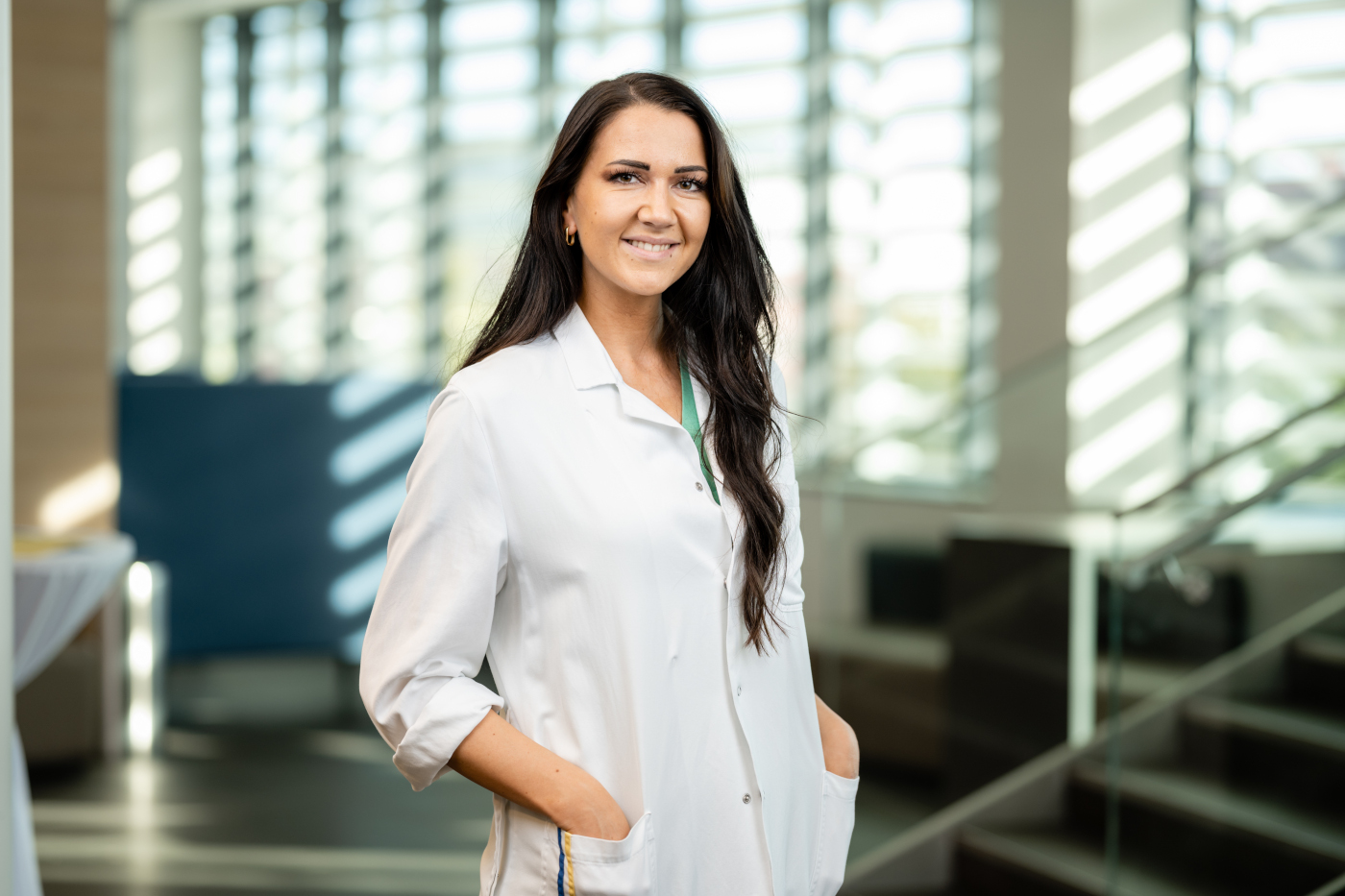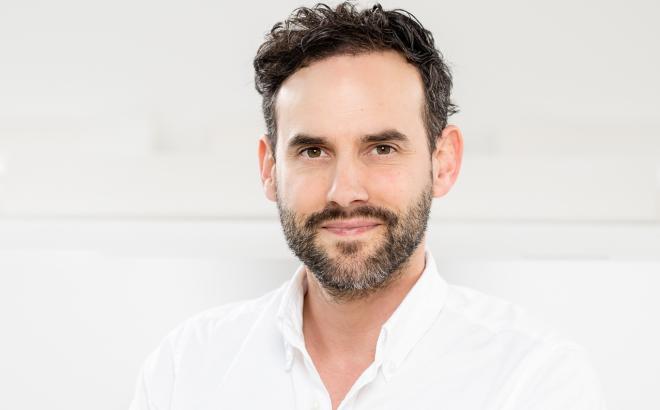Theresa Lentner, Oncologist-in-training
Medicine combines science, research, empathy and emotional reward like no other profession
Dr Theresa Lentner, BSc (née Schmalfuss) is an assistant doctor at the Clinical Division of Internal Medicine I, St. Pölten University Hospital. She began her Research Time Out (RTO) in 2023, meaning that she reserved part of her working time for research. The doctor plans to complete a PhD in the field of oncology during this research period. Her research project HUMPHREY – Hisology specimen Utilization of Molecular Profiling of cancers in Hitherto Resistant or Exhausted to TherapY focuses on using molecular screening methods to identify potential therapeutic targets in patients with advanced colon cancer. “I find oncology especially interesting because no other field has quite so many new therapies,” says Dr Lentner. “My research topic extends to the immune system – I’m looking at resistance in immunotherapies.”
Even back when she was attending an international English-speaking school in Yokohama, Japan, Theresa Lentner was particularly interested in scientific subjects and found that she could quickly grasp interconnections in biology. This led her to desire to become a doctor at a relatively young age. After graduating from high school, she was granted a place at the University of Nottingham, England, where she studied for a degree from 2012 to 2015. Although she discovered her love of basic research and a broadly research-oriented mindset in England, the approach of Brexit prompted the aspiring doctor to look for an alternative university. In 2016 she settled on Karl Landsteiner University of Health Sciences (KL) and went on to do her master’s degree, graduating with flying colours. While she was studying at KL, she worked as a researcher at Cochrane Austria and provided rapid reviews for the Evidence-Based Information Centre for Doctors. After clerkships in Munich, Peru and St. Pölten, she completed her internship at the Department of Haematology and Oncology at St. Pölten University Hospital. Since 2021 she has been an assistant doctor at the Department of Haematology and Oncology, which is part of the Clinical Division of Internal Medicine I, under the direction of Associate Professor Martin Wiesholzer. “When I started university, I actually wanted to become a general practitioner, as I like having that one-to-one contact with people,” says Dr Lentner, explaining the path she has taken to become an oncologist today. “But with my love of research came my love of oncology: there’s a lot of new research going on in this field, and as a doctor I get to take care of my patients for a longer period of time. I did an extra clerkship in oncology to make sure that oncology was right for me and that I was up to the challenges. That soon became clear. During the Covid-19 pandemic I regularly helped out in oncology, as this field suits me perfectly and I liked the department team.” She is a highly active member of the Gastrointestinal Oncology Working Group and has written and assisted with a number of journal articles, short reviews, publications, lectures and other projects. Nevertheless, her focus is more on haematology: “I’m hugely interested in immunomodulatory therapies, which are the focus of my PhD. At the same time, the University Hospital St Pölten is growing in status as a centre for haematology in Lower Austria by offering new therapies like CAR T-cells.”
Dr Theresa Lentner is now a YHOGA Ambassador at St. Pölten University Hospital. YHOGA stands for Young Hematologist & Oncologists Group Austria, part of the Austrian Society of Haematology & Medical Oncology, and assists young doctors with their needs, offers conference funding and practical courses abroad, and promotes networking. The young doctor believes empathy to be particularly important. She has previously contributed her skills as a social worker in Cambodia, spent four months at a children’s home in Argentina and worked for six months in Munich as a project assistant for Médecins du Monde during the 2015 refugee crisis. She and a group of other women cook regularly for the VinziRast soup kitchen in Vienna.
“I moved about repeatedly during my childhood, living in Canada, Japan and Germany. Perhaps that’s why I am increasingly drawn to world history,” says Dr Lentner, who hopes to do a placement abroad during her current PhD studies. “I want to network as intensively as possible, but I’m also curious about how things are done elsewhere. I want to see things from as many different angles as I can. That doesn’t just lead to a deeper understanding of the subject at hand – it also sparks a sense of gratitude for how well we’re doing here in Austria.” Dr Lentner also has specific plans for her post-doctoral studies: “First of all, I want to get the most out of the time I spend doing my PhD and RTO. I’m very grateful to my boss, Associate Professor Wiesholzer, for his support. Working with the young, multidisciplinary team at the Center for Cancer Research at the Medical University of Vienna under the direction of Professor Maria Sibilia has been a lot of fun, and I’m making good progress with my work. At the moment I have the best of both worlds – an interesting clinical routine and a highly fulfilling research assignment. My research project is bringing new patients to University Hospital St. Pölten, and a multicentre study is underway involving the hospital. Dr Hossein Taghizadeh, MSc, PhD, and I are planning another project that will start soon,” says Dr Lentner eagerly. “After my PhD studies, I’d like to continue working on my academic career, as I enjoy working with young people as much as overseeing my patients. So, after I get my PhD, my next goal will be a postdoctoral lecture qualification.”

Dr. Theresa Lentner BSc
Division of Internal Medicine 1 (University Hospital St. Pölten)




